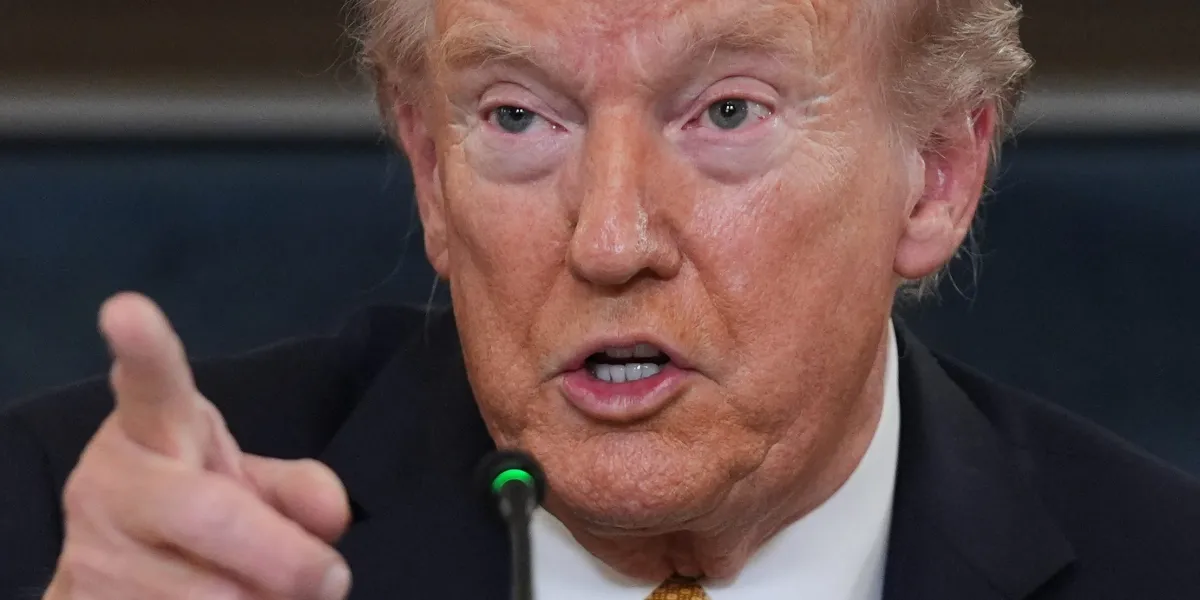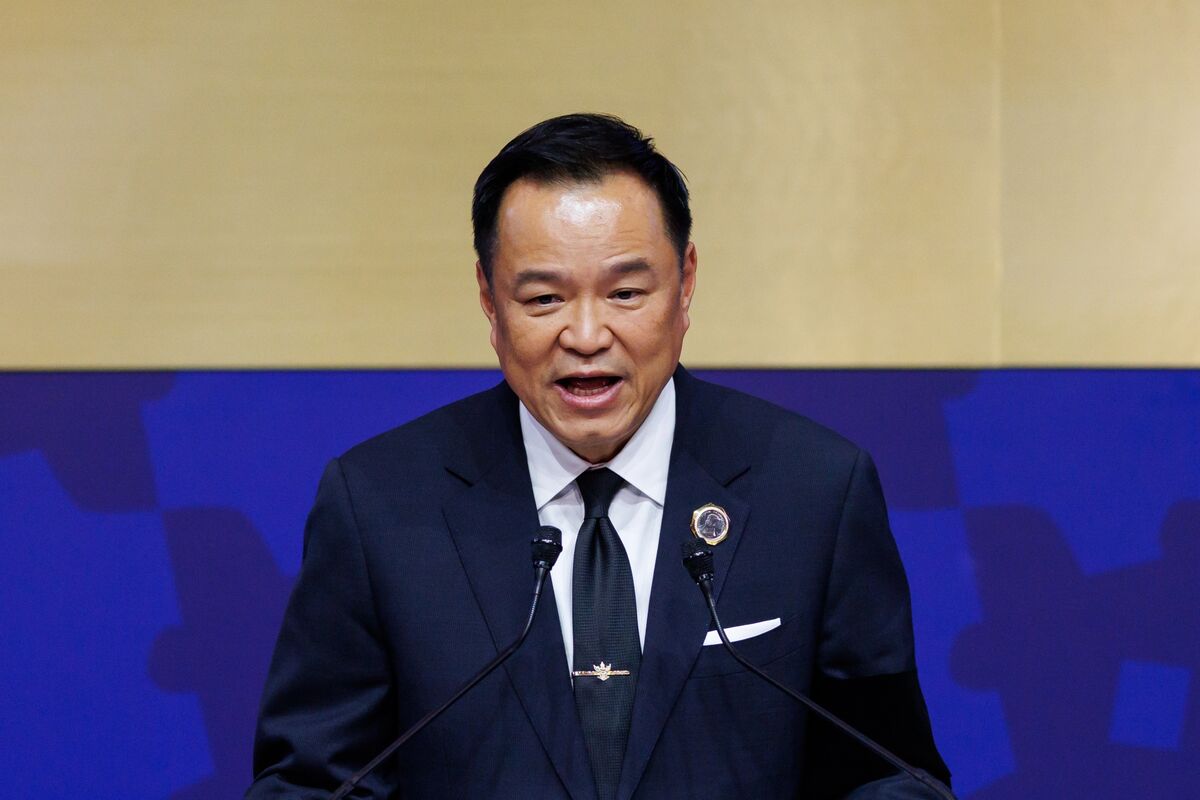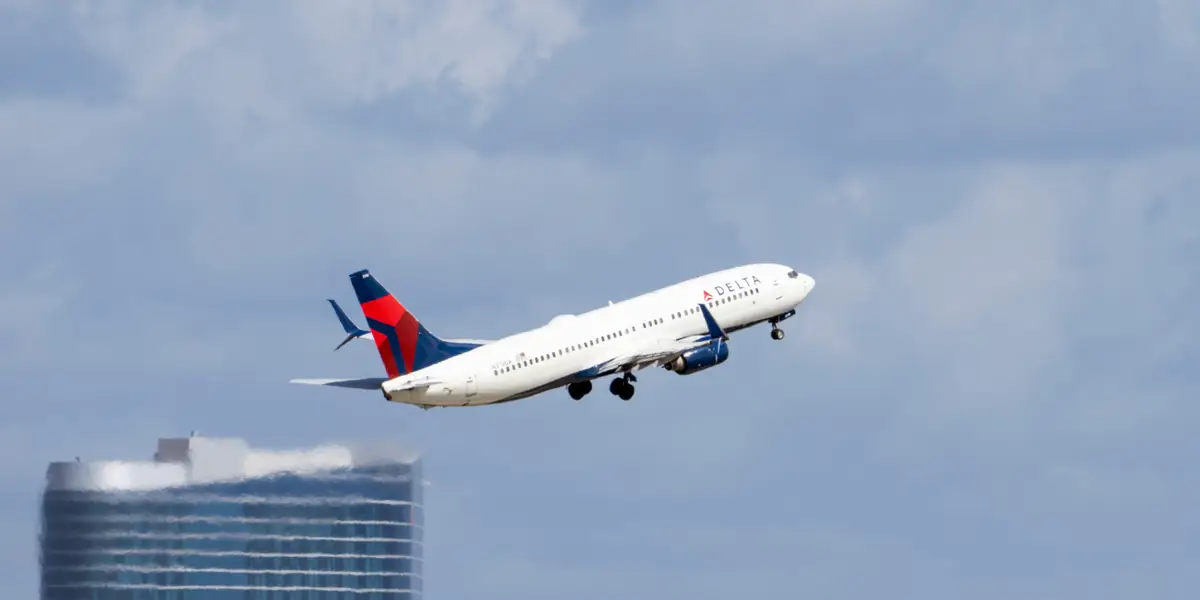Copyright The Intercept

The U.S. government has long maintained lists of terrorist organizations. Groups classified as “Specially Designated Global Terrorists” or “Foreign Terrorist Organizations” have been hit with financial penalties, immigration restrictions, or other sanctions. Groups on the FTO list, such as Al Qaeda and ISIS, have been targeted with lethal strikes. But these designations aren’t enough for President Donald Trump. The U.S. government has instead begun drawing up new lists of terrorist organizations without disclosing the identities of the groups to Congress or the American people. One of these lists is tied to Trump’s undeclared war in the Caribbean and the Pacific Ocean, where the U.S. military is summarily executing alleged drug traffickers. There are reportedly dozens of groups on the list, but only two organizations — the Venezuelan gang Tren de Aragua and the Colombian guerrilla group Ejército de Liberación Nacional — are publicly known. Trump has also ordered his administration to compile a domestic terrorist list made up of his political foes, despite the fact there is no legal mechanism for labeling exclusively domestic organizations as terrorist groups. Under Trump’s National Security Presidential Memorandum 7, or NSPM-7, he instructed his administration to target U.S. progressive groups and their donors as well as political activists who profess undefined anti-American, anti-fascist, or anti-Christian sentiments. Unlike with prior lists, such as the State Department’s register of FTOs, it’s currently impossible to know if you are a member of a domestic terrorist group and what the penalties might include. “Existing laws allow the president to create two types of lists: designated foreign terrorist organizations and specially designated global terrorists. Statutes specify the results of being on these lists, such as being liable for material support and financial sanctions,” Faiza Patel, the senior director of the Brennan Center’s liberty and national security program told The Intercept. “But neither of these lists, and none of these laws, authorizes the president to designate domestic groups as terrorist organizations.” Lawmakers see Trump’s push to build secret terrorist lists as an authoritarian overreach that could result in government violence — or even deadly force — against American citizens exercising their constitutional rights in the United States. “You can easily see a world where the president of the United States labels protest groups ‘terrorists,’ doesn’t tell anyone, and creates an excuse to unilaterally use the military inside our cities, similar to the way he’s used them in the Caribbean,” Sen. Elissa Slotkin, D-Mich., said in a Senate floor speech last month. “This time, instead of stopping drug traffickers, it will be stopping Americans, potentially from exercising their right to free speech.” “I don’t think that’s an irrational fear to have,” Rep. Sara Jacobs, D-Calif., a member of the House Armed Services Committee, said of the possibility of Trump expanding his war on supposed terrorists in the Caribbean and the Pacific to the United States. “I represent a border community. I have a lot of fears about what this will mean for my community and what they’ll try to use these so-called authorities to do domestically.” The Department of War, Department of Justice, and the White House all failed to provide lists of the groups being targeted to The Intercept. The White House did not respond to repeated requests to clarify whether those on the administration’s domestic enemies list are subject to summary execution. Antifa, short for anti-fascist, is a decentralized, leftist ideology; a collection of related ideas and political concepts much like feminism or environmentalism. Over the last decade, however, Republicans have blamed antifa for violence and used it as an omnibus term for left-wing activists — as if it were an organization with members and a command structure. In 2019, during his first term, Trump floated the idea of declaring antifa “a major Organization of Terror,” likening the group MS-13, an international criminal gang that originated in the U.S. that the Trump administration added to the FTO list earlier this year. “The United States of America will be designating ANTIFA as a Terrorist Organization,” Trump tweeted in 2020, during protests after the police killing of George Floyd. But then-FBI Director Christopher Wray said antifa was “not a group or an organization” but a “movement or an ideology.” Trump lashed out, calling antifa “well funded ANARCHISTS & THUGS who are protected because the … FBI is simply unable, or unwilling, to find their funding source.” After Trump supporters stormed the U.S. Capitol on January 6, 2021, in order to overturn his 2020 election loss to Joe Biden, Trump blamed “antifa people” for inciting violence. In September, Trump signed an executive order designating antifa as a “domestic terror organization.” He followed it by issuing NSPM-7, which directs the Justice Department and elements of the Intelligence Community and national security establishment to target “anti-fascism … movements” and “domestic terrorist organizations.” Under U.S. law, the government can designate “foreign terrorist organizations,” a process that typically entails a formal declaration by the secretary of state at the direction of the president, allowing the Treasury Department to impose financial penalties and the Justice Department to prosecute people for providing “material support” to the group. Congress has not passed any law creating a domestic terrorism designation, nor is there a standalone crime of “domestic terrorism.” Under NSPM-7, vaguely defined enemies are not only typified by “support for the overthrow of the United States Government,” according to the Trump administration, but also advocacy of opinions clearly protected by the First Amendment including “anti-Americanism, anti-capitalism, and anti-Christianity” as well as “hostility towards those who hold traditional American views on family, religion, and morality.” Trump’s memorandum calls on Attorney General Pam Bondi to compile a list “of any such groups or entities” to be designated as “domestic terrorist organization[s].” NSPM-7 also directs government agencies to target “all participants in these criminal and terroristic conspiracies—including the organized structures, networks, entities, organizations, funding sources, and predicate actions behind them.” In response to a request for further information, including the names of the groups on Bondi’s NSPM-7 domestic terror list, senior Justice Department spokesperson Natalie Baldassarre replied: “No comment.” When asked why the United States has a secret list of domestic terror groups and why the information was being withheld from the American people, Baldassarre responded: “And again, no comment.” “While we don’t yet know exactly how NSPM-7 will be implemented, we do know the dangers of the government targeting groups and individuals based on their First Amendment-protected ideology and beliefs,” Hina Shamsi, the director of the ACLU National Security Project, told The Intercept. The Trump administration ramped up its efforts to target domestic enemies in the wake of the killing of right-wing influencer Charlie Kirk, making wild claims about a vast leftist network that funds and incites violence and investigating whether a foreign government or domestic groups were involved in his murder. Last week, during a Senate Judiciary Subcommittee hearing on politically motivated violence, which also repeatedly referenced Kirk, Chair Eric Schmitt, R-Mo., blamed the left for “organized, coordinated political terror.” White House deputy chief of staff Stephen Miller is now heading a sweeping effort to deploy the weight of the federal government — the FBI, Department of Homeland Security, IRS, Justice Department, and Treasury Department — against liberal and left-wing groups. “With God as my witness, we are going to use every resource we have at the Department of Justice, Homeland Security, and throughout this government to identify, disrupt, dismantle, and destroy these networks,” Miller told Vice President JD Vance on Kirk’s podcast on September 15, days after the influencer’s death. “I will also be strongly recommending that those funding ANTIFA be thoroughly investigated in accordance with the highest legal standards and practices,” Trump posted on Truth Social in September, announcing that he was designating the decentralized movement as a “MAJOR TERRORIST ORGANIZATION.” Fox News announced the arrest of a “Portland Antifa lieutenant” last week, mimicking the language of the early- to mid-global war on terror when the United States routinely announced the killing of an endless number of supposed top Al Qaeda and ISIS “lieutenants.” Thirty-one members of Congress sent a letter to Trump last month, expressing “serious concerns” about the anti-antifa executive order and NSPM-7, warning that “these directives pose serious constitutional, statutory, and civil liberties risks, especially if used to target political dissent, protest, or ideological speech.” “Regardless of whether the President agrees with someone’s political views, the Constitution guarantees their right to speak and assemble peacefully. Officials must not label individuals as ‘supporting Antifa’ or ‘coordinating with Antifa’ based solely on their protected speech,” wrote the lawmakers. “In fact, neither the memo nor the executive order clearly defines ‘Antifa’ as a specific entity. Instead, the executive order conflates nonviolent protest and activism with doxing and violent behavior. Without clear definitions and limits, this vague framing could subject lawful political expression and assembly to the same treatment as terrorism.” Trump’s targeting of domestic enemies comes at the same time he has deployed troops to occupy Los Angeles, Memphis, New Orleans, Chicago, and Portland, Oregon. A federal judge ruled in September that the first of those deployments, which is ongoing, is illegal. Meanwhile, Trump has been threatening to invoke the Insurrection Act of 1807 — one of the executive branch’s most potent, oldest, and rarely used emergency powers — and taken aim at other cities he claims “are run by the radical left Democrats,” including San Francisco, Chicago, and New York. “We’re going to straighten them out one by one. And this is going to be a major part for some of the people in this room,” he said in a rambling address to hundreds of generals and admirals in late September. “That’s a war too. It’s a war from within.” Trump has consistently peddled misinformation to justify federal crackdowns and urban military occupations. Along with claims that American cities are “burning to the ground” beset by “Antifa-led hellfire” and “Violent Radical Left Terrorism,” the president even fabricated a story of hand-to-hand combat between troops and child gangsters from the Venezuelan gang Tren de Aragua on the streets of Washington, D.C. Regularly casting the gang as a bogeyman has served to justify illegal, authoritarian efforts by the administration. In an attempt to use the 1798 Alien Enemies Act to fast-track deportation of people it says belong to the gang, the Trump administration, for example, claimed Tren de Aragua had invaded the United States. In September, the 5th U.S. Circuit Court of Appeals blocked the government from using the war-time law. “We conclude that the findings do not support that an invasion or a predatory incursion has occurred,” wrote Judge Leslie Southwick. Since September, Trump has repeatedly killed civilians that he claims are members of Tren de Aragua as part of a campaign of attacks on supposed drug-smuggling boats in the Caribbean and the Pacific Ocean. That group is one of an unknown number of “designated terrorist organizations,” or DTOs, that Trump has unilaterally decreed to be in a state of “non-international armed conflict” with the United States. A defense official who spoke to The Intercept on the condition of anonymity called the DTO label “meaningless.” The Office of the Secretary of War acknowledged a series of detailed questions by The Intercept about DTOs but would not even say if it knew which DTOs the U.S. is targeting with lethal attacks, much less provide a list of the groups. Jacobs, despite her role on the Intelligence and Special Operations subcommittee, has yet to see a DTO list. Both she and Slotkin believe that there are now dozens of designated terrorist organizations. Slotkin noted that when Republican and Democratic members of the Senate Armed Services Committee asked a Senate-confirmed official whether the Pentagon could produce a list of the organizations that are now considered terrorists by the United States, the official declined. “I think we should have as a basic principle that you can’t have a secret list of terrorist organizations that the American public and certainly the U.S. Congress don’t even get to know the names of,” said Slotkin. Sen. Jack Reed of Rhode Island, the top Democrat on the Armed Services Committee, told The Intercept, “Every American should be alarmed that their President has decided he can wage secret wars against anyone he calls an enemy.” The Justice Department’s Office of Legal Counsel has produced a classified legal opinion that justifies the lethal strikes on suspected drug smugglers, according to three government officials who spoke to The Intercept. The opinion argues that the president can authorize summary executions of members of designated cartels because they pose an imminent threat to Americans. The Justice Department failed to reply to The Intercept’s requests for further information. Experts on the laws of war say that the OLC opinion provides the president with legal cover to designate drug traffickers as enemy combatants and kill them without due process. This is a major deviation from standard practice in the long-running U.S. war on drugs, in which the Coast Guard interdicted drug-trafficking vessels and arrested smugglers, as opposed to summarily executing them. Sarah Harrison, who advised military leaders on extrajudicial killings in her former role as associate general counsel at the Pentagon, spoke of the dangers of concealing the legal analysis surrounding the administration’s undeclared war on DTOs. “My biggest concern with keeping this secret, including the list of groups the administration says it is at war with, is that it indicates the likelihood of little or no limitation on the use of military force,” she told The Intercept. “What do they have to hide? It seems most likely that they’re wanting to obscure the fact that they think the executive can do things we have traditionally viewed for decades as illegal.” In 1947, President Harry S. Truman issued an executive order for the government to create a list of organizations engaged in subversive activity against the United States. By the early 1970s, the list had grown to 283 groups. The House Un-American Activities Committee also investigated alleged Communist activity in Hollywood and various New Deal government agencies, compiling an initial list of 90 organizations, many of which it claimed were affiliated with the Communist Party. U.S. attorneys general maintained and updated the list, which grew to 621 groups and publications. The list was abolished in 1974 during the Nixon administration. Nixon, for his part, maintained a private enemies list, targets for whom the president could — in the words of White House counsel John Dean — “use the available federal machinery to screw our political enemies.” Dean said that the government could wield “grant availability, federal contracts, litigation, prosecution, etc.” There were initially 20 names on the list: a mix of politicians, business, and union leaders, journalists, and celebrities. As part of his war on whistleblowers, Nixon had FBI Director J. Edgar Hoover tap the phone of another person on the list, Morton Halperin, who served on Henry Kissinger’s National Security Council staff. Hoover’s FBI also launched a top-secret program “to expose, disrupt, misdirect, discredit, or otherwise neutralize” a sprawling list of persons and groups opposed to the Vietnam War, as well as Black leaders, civil rights groups, Native American, and other social justice groups and activists. The FBI’s Counter Intelligence Program — better known as COINTELPRO — was eventually exposed and led to a landmark congressional investigation, the 1975 Church Committee, that resulted in an overhaul of national security and intelligence agencies. Post-9/11, however, many of the 1970s reforms were rolled back, leading to renewed abuses of Black, brown, and Muslim communities, and racial, social, environmental, animal rights, and other social justice activists and groups. The Patriot Act, signed into law in the aftermath of the attacks, defined domestic terrorism as acts of intimidation that are “dangerous to human life that are a violation of the criminal laws of the United States” but did not define it as a crime in and of itself. Instead, the Act was frequently used to surveil people without a legal basis, including those engaged in First Amendment-protected protest and other activities. The current FBI director, Kash Patel, published his own enemies list, and since taking office, many on it have come under federal investigation or been indicted on criminal charges, including former President Joe Biden, former White House national security adviser John Bolton, former CIA Director John Brennan, and former FBI Director James Comey. Trump has also called for political opponents like Illinois Gov. JB Pritzker and Chicago Mayor Brandon Johnson to be jailed for opposing his deployment of the National Guard to Chicago. The administration has also used the power of the federal government to crack down on immigrants, anti-ICE protesters, and pro-Palestinian activists, among others. Slotkin, a former CIA analyst who served three tours in Iraq and worked in national security roles at the Pentagon and White House, sees Trump’s new lists as a gateway to further abuses. “They said that they were going to, again, make secret lists of terrorist groups inside the United States and send the full force of the U.S. government against those terrorist organizations. They are not telling anyone about this but asking that law enforcement come up with that list,” she warned in the Senate floor speech last month. “If this administration is not telling us who’s on their secret designated terrorist list for groups in the Caribbean, they’re definitely not going to tell us who’s on their list of domestic terrorist organizations.” Faiza Patel, of the Brennan Center, also drew attention to the overlapping dangers of the Trump administration’s attacks on suspected drug smugglers in the Caribbean and the Pacific and the president’s domestic use of troops. “Designating drug cartels as terrorist organizations for purposes of criminal or financial sanctions laws does not change the lack of legal authority for military force,” she told The Intercept. “Using methods of war against drug traffickers also blurs the line between law enforcement operations and war, a particularly alarming development given the administration’s deployment of National Guard and active-duty soldiers to cities to assist in general crime control and immigration enforcement.” Trump has teased using urban occupations to hone the skills of the armed forces. “We should use some of these dangerous cities as training grounds for our military,” he told his generals and admirals. Last Wednesday, Trump said he could “send the Army, Navy, Air Force, Marines — I could send anybody I wanted” into America’s cities. Slotkin drew specific attention to Trump’s threats to invoke the Insurrection Act, which allows the president to circumvent the Posse Comitatus Act, a bedrock 19th-century law banning the use of federal troops to execute domestic law enforcement that is seen as fundamental to the democratic tradition in the United States. “The president is looking for an excuse to send in the U.S. military into our streets — to deploy the U.S. military against his own people — to prompt confrontation, and to hope that that confrontation justifies even more military force and military control,” she warned, noting that the Insurrection Act gives the U.S. military the power to “raid, arrest, and detain.” “I’ve only seen this kind of thing in other countries,” Slotkin said on MSNBC last Thursday, calling Trump’s use of the “military inside the United States completely and fundamentally un-American in my mind.” Amid urban occupations and crackdowns on immigrants, activists, and other foes, the Trump administration’s undisclosed enemies’ lists represent a new and dangerous front in their war on disparate but as yet unnamed enemies. “Trump’s secret designations of DTOs are a naked attempt to use all levers of law enforcement to attack his political enemies rather than protect the people. He is going after those who disagree with him or fight back against his corruption and authoritarianism and trying to classify opposition to his views as ‘domestic terrorism,’” Rep. Pramila Jayapal, D-Wash., told The Intercept. “The attempt to broadly classify domestic terrorism as ‘anti-Americanism, anti-capitalism, and anti-Christianity’ is dangerous for everyone, and keeping the American people in the dark about who he is going after and why is all part of the authoritarian’s playbook.” But Shamsi, of the ACLU, said that public should not be cowed by the administration’s latest despotic efforts. “We can’t let ourselves be intimidated in our pursuit of human rights and the civil liberties guaranteed by the Constitution,” she told The Intercept. “Congressional and state and local officials must also speak up and help make sure the administration does not act in secrecy and without accountability.”



